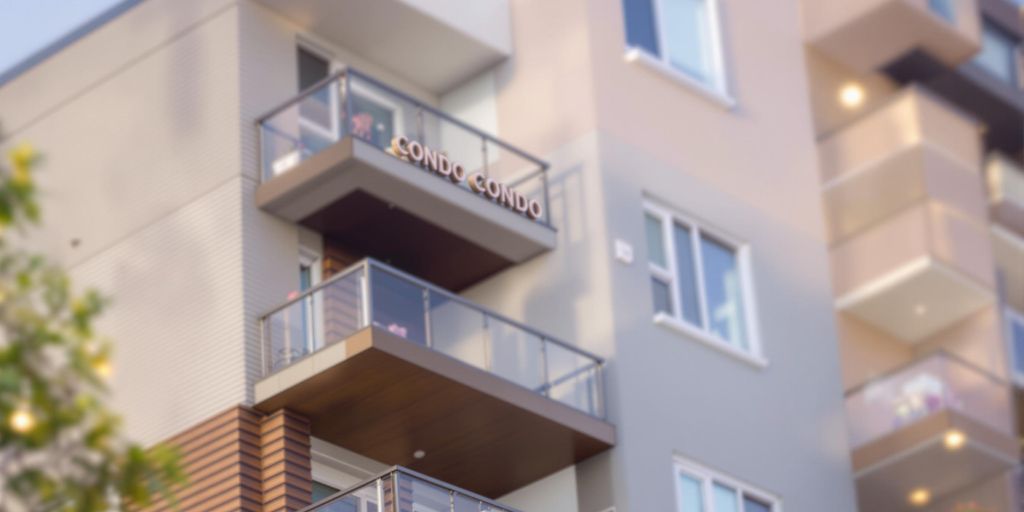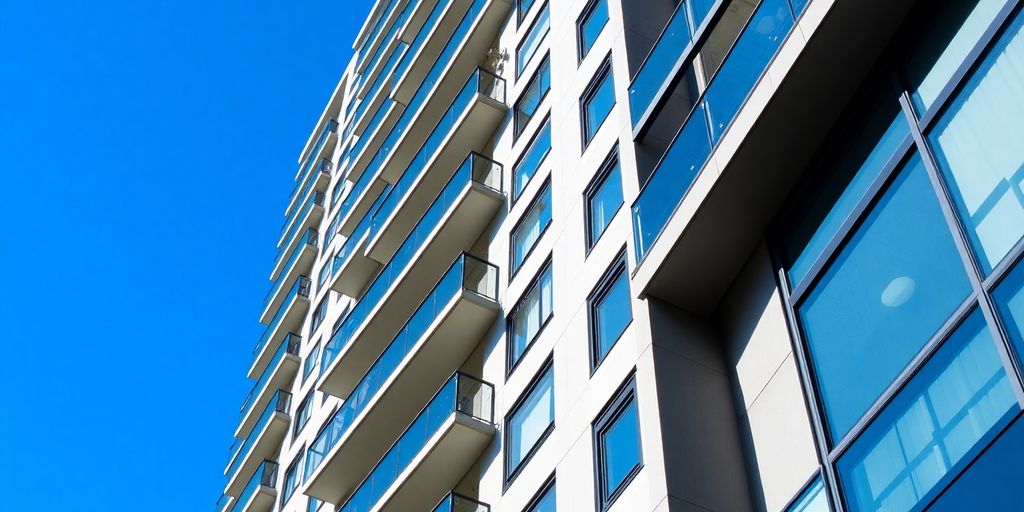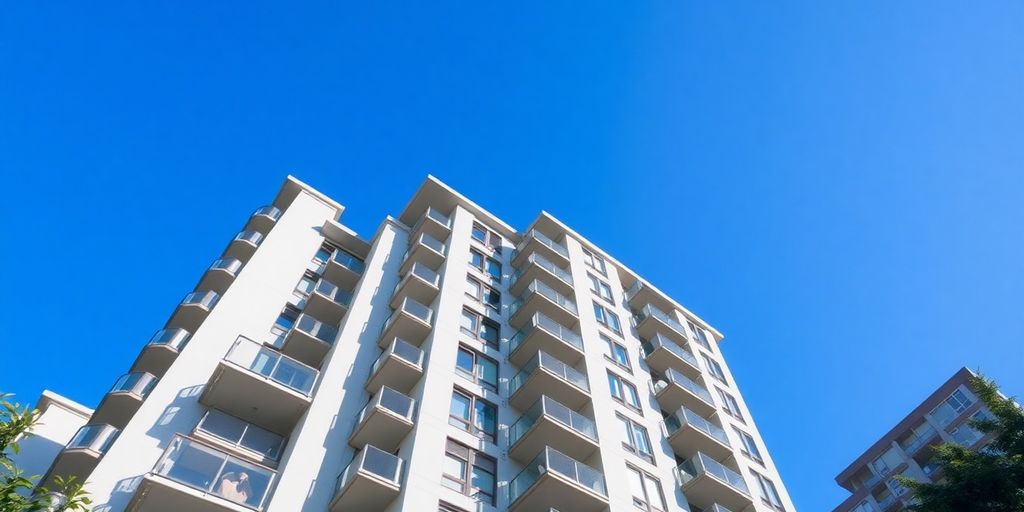Do I have enough building coverage for my condo policy?

If you own a condo, understanding your insurance policy is crucial. A condo policy, also known as an HO6 policy, helps protect your home and belongings from various risks. It’s important to know what coverage you need to ensure you’re fully protected in case of unexpected events like fire, theft, or liability claims. This article will guide you through the essentials of condo insurance, helping you determine if you have enough building coverage for your needs.
Key Takeaways
- A condo policy protects your unit's interior and personal belongings.
- Review your condo association's bylaws to understand required coverage.
- Consider loss assessment coverage to protect against shared costs.
- Customize your policy with additional coverage options if needed.
- Regularly check your coverage limits and deductibles for adequacy.
Understanding Condo Policy Coverage

What is a Condo Policy?
A condo policy is basically insurance for your condo. It's like a safety net for the stuff inside your unit and covers things like damage or theft. Condo insurance typically covers personal belongings, interior walls, and liability costs if someone gets hurt in your place. It's not mandatory by law, but highly recommended to keep your investment safe.
Key Components of Condo Coverage
Condo insurance has a few main parts:
- Personal Property Coverage: Protects your stuff like furniture, electronics, and clothes.
- Building Property Coverage: Covers the interior structure of your unit like floors and walls.
- Liability Coverage: If someone gets hurt in your condo, this helps cover legal costs.
- Loss of Use: If your condo becomes unlivable due to a covered event, this helps with temporary living expenses.
Differences Between Condo and Home Insurance
Condo insurance is different from home insurance mainly because of what it covers:
- Condo Insurance: Focuses on the inside of your unit and personal belongings.
- Home Insurance: Covers the entire structure of your home and everything inside.
When choosing insurance, it's important to understand these differences so you're not caught off guard if something happens. Condo insurance is more about protecting your personal space within a larger building, while home insurance covers the whole property.
Assessing Your Building Coverage Needs
Reviewing Your Condo Association's Bylaws
First off, snag a copy of your condo association's bylaws. This is your guidebook, telling you what kind of coverage you're supposed to have. Bylaws spell out the building coverage you need to carry and any loss assessment coverage you might be on the hook for. It's not one-size-fits-all, so read up.
Evaluating Your Personal Coverage Requirements
Next, think about what you personally need. Do you have pricey stuff? Maybe some art or a fancy TV? Make sure your insurance covers these. You might want to list out your belongings and their values. This helps you see if your coverage is enough or if you need to bump it up.
Understanding Loss Assessment Coverage
Loss assessment coverage is like a backup plan. If something happens in the common areas, like the lobby or the pool, and the association's insurance doesn't cover it all, you might have to chip in. This coverage helps you avoid unexpected big bills. Check if your policy includes this and how much coverage it offers.
Customizing Your Condo Insurance
Options for Additional Coverage
When it comes to condo insurance, there are plenty of ways to tweak your policy to fit your needs. Maybe you've got some pricey stuff like jewelry or art. You might want to think about adding extra coverage for those. It's like giving your valuables a little extra hug. Don't forget about Choice Insurance Solutions, they offer ways to customize your policy.
Adjusting Coverage Limits
Setting the right coverage limits is a big deal. You don’t want to be stuck with a bill if something goes wrong. Take a good look at your condo's value and decide how much coverage you really need. Sometimes, more is better, but not always. It's all about finding that sweet spot.
Choosing the Right Deductible
Picking a deductible is kinda like choosing a pizza size. Go big, and your monthly cost might go down, but you'll pay more if you need to claim. Go small, and you're paying more each month, but less when something happens. It's a balancing act, really. Think about what works for your budget and peace of mind.
Customizing your condo insurance isn't just about protection—it's about peace of mind. Knowing you've got the right coverage means one less thing to worry about.
Factors Influencing Condo Insurance Premiums

Location and Building Characteristics
Where your condo is and what it's made of can really mess with your insurance costs. Living in a spot prone to hurricanes or earthquakes? Expect to pay more. Also, if your building’s older or made of materials that aren't up to snuff, that could hike up your premium.
Personal Claims History
Ever made a claim before? Well, insurers keep tabs on that. If you've had a few claims in the past, they might see you as a bigger risk, which means you might end up paying more. It's like when you get a bad driving score, it can affect your premium.
Impact of Coverage Limits on Premiums
The more coverage you want, the more it’ll cost you. Higher coverage limits mean higher premiums. It's like ordering extra toppings on your pizza. You get more, but you gotta pay more too. If you're looking to save on costs, you might want to consider adjusting your coverage limits to find a balance that works for you.
Tips for Saving on Condo Insurance
Bundling Insurance Policies
Want to save a bit on your condo insurance? Think about bundling it with other insurance policies like your car or even life insurance. Bundling is like getting a combo meal—more for less. Most insurance companies offer discounts if you bundle your condo insurance with another policy. It's a simple way to keep more money in your pocket.
Increasing Your Deductible
Another way to cut down on your insurance costs is by raising your deductible. Yeah, it means you pay more out of pocket if something happens, but it can seriously lower your monthly premium. It's kind of like betting on yourself to not need insurance often. Just make sure you can afford that higher deductible if you ever need to pay it.
Regularly Reviewing Your Policy
Don't just set it and forget it. Make it a habit to check your condo insurance policy every year or so. Life changes, and so do your insurance needs. Maybe you've bought some new furniture or renovated your kitchen. Regular reviews can help you catch these changes and adjust your coverage so you're not overpaying or underinsured.
"Keeping an eye on your insurance policy is like checking your rearview mirror—do it often to avoid surprises."
Navigating the Claims Process
Steps to File a Condo Insurance Claim
Filing a claim can feel overwhelming, but it doesn’t have to be. Here’s a simple list to guide you through:
- Notify your insurance company as soon as possible after the incident.
- Gather documentation, including photos of the damage and any relevant receipts.
- Fill out the claim form provided by your insurer and submit it with your documentation.
Working with Claims Specialists
Once you file your claim, a claims specialist will be assigned to assist you. Here’s what they can help with:
- Explaining the claims process and what to expect.
- Guiding you through any additional documentation needed.
- Providing updates on the status of your claim.
Common Mistakes to Avoid
When dealing with claims, it's easy to make mistakes. Here are a few to watch out for:
- Delaying your claim can lead to complications. Time is often of the essence.
- Forgetting to document everything thoroughly can hurt your case later.
- Not understanding your policy can lead to confusion about what’s covered. Always review your policy details.
Being prepared and informed can make the claims process smoother and less stressful. Don't hesitate to ask your insurer questions if you're unsure about anything.
The Importance of Liability Protection in Condo Policies

Understanding Liability Coverage
Alright, so let's talk about liability coverage in condo insurance. This is the part of your policy that steps in if someone gets hurt in your condo or if you accidentally cause damage to someone else's property. It's like a safety net. You know, accidents happen. And when they do, having this coverage means you don't have to dig into your own pockets to cover expensive medical bills or repair costs.
Protecting Against Lawsuits
Picture this: a friend slips on your freshly mopped floor and breaks an arm. Or maybe, you're responsible for a leak that damages your neighbor's condo. Without liability protection, you could be on the hook for all those costs. Here's what liability protection can cover:
- Medical expenses for injuries that happen in your condo.
- Legal fees if someone decides to sue you.
- Property damage costs if you accidentally damage someone else's stuff.
Enhancing Liability Limits
Now, you might be thinking, "How much coverage do I really need?" That's a fair question. It depends on your situation. If you have a lot of assets, you might want to consider upping your liability limits. This way, you're not left vulnerable in case of a big claim. Think of it as an extra layer of protection, just like wearing a seatbelt even when you're driving carefully.
Condo insurance isn't just about protecting your stuff; it's about protecting you from financial headaches if things go south. Having the right liability coverage gives you peace of mind, knowing that you're covered if something unexpected happens.
For those with investment properties, liability protection is even more crucial. It shields you from potential legal claims and financial losses, safeguarding your investments effectively.
Final Thoughts on Condo Coverage
In conclusion, it's important to ensure that your condo insurance has enough building coverage. This coverage protects your home and belongings from unexpected events like fires or theft. Always check your condo association's rules to know what coverage you need. If you're unsure, talk to an insurance expert who can help you find the right plan for your needs. Remember, having the right coverage can give you peace of mind and protect your investment.
Frequently Asked Questions
What is condo insurance?
Condo insurance is a special type of insurance for people who own a condo. It protects the inside of your condo, your personal items, and gives you liability coverage.
Is condo insurance necessary?
Condo insurance isn't required by law, but it's a smart choice. It helps keep your investment safe and gives you peace of mind if something unexpected happens, like a fire or theft.
What does condo insurance cover?
Condo insurance usually covers the inside of your unit, your belongings, liability for accidents, and extra living costs if you can't stay in your condo due to damage.
What is loss assessment coverage?
Loss assessment coverage helps condo owners pay for damages in shared areas of the building. This coverage is for specific claims, not general costs.
Can I combine condo insurance with other policies?
Yes, many insurance companies let you combine condo insurance with other types, like auto insurance. This can save you money.
How can I save money on condo insurance?
You can save by raising your deductible, bundling insurance policies, and keeping a good claims history. It's also good to check your policy regularly to ensure you're getting the best deal.
